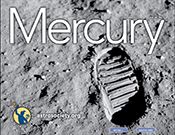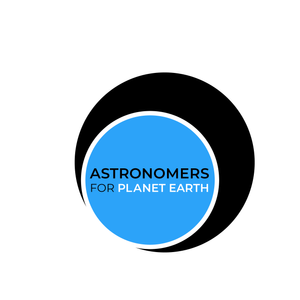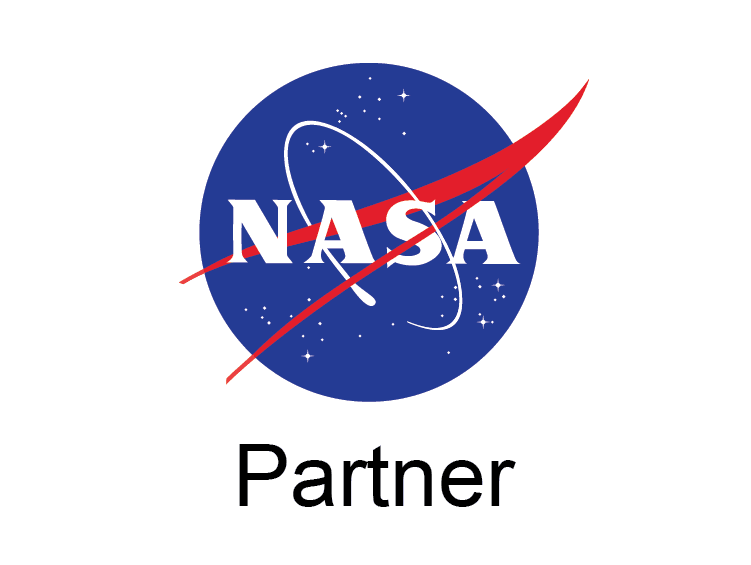Summer 2019 - Volume 48, Number 3

Table of Contents
[8] Space News
A rundown of some of the most exciting developments in space and time.
[31] Cosmic Views, Jason Major
The Moon gives Earth some shade and a new view of the relativistic engine behind Einstein’s Cross.
[33] On the FAST Track, Steve Murray
A giant radio telescope in China displaced thousands of people during its construction, but now it’s complete and taking data.
[39] The Moon: Earth’s Eighth Continent? Tracy Staedter
A global collaboration has been formed to ensure the lunar surface is explored in an open, peaceful and sustainable way.
Departments
[3] Perspectives, Ian O’Neill
Time to Dump the “Habitable Zone”?
[4] First Word, Linda Shore
Dinosaurs, Astronomy, and Space Exploration
[6] ASP News
ASP 2019 Awards Announced!
[14] Annals of Astronomy, Clifford J. Cunningham
The Monk, Astrolabe and Lunar Eclipse of 1092
[16] Astronomer’s Notebook, Jennifer Birriel
How to Celebrate Apollo 11? Teach Its Science
[18] Armchair Astrophysics, Christopher Wanjek
Voids Fill in the Voids About Universal Expansion
[20] Research Focus, Arianna Long
Why Do Galaxies in Large Clusters Age Prematurely?
[23] Research Focus, James Negus
Are Supermassive Black Holes Galactic Regulators?
[25] Education Matters, Brian Kruse
Bridging the Learning Divide
[27] A Little Learning, C. Renee James
Just the Facts
[44] Reflections, Ian O’Neill
That’s No Lightsaber. That’s a Galaxy
On the FAST Track (Feature)
By Steve Murray
Tianyan (“the eye of heaven”) is open and astronomers are excited about what it’s seeing. The Five-hundred-meter Aperture Spherical Telescope (FAST)—the world’s biggest radio astronomy dish—is demonstrating its enormous potential, even while its commissioning tests are still underway.
The Moon: Earth’s “Eighth Continent”? (Feature)
By Tracy Staedter
It’s been 50 years since Neil Armstrong took a giant leap and became the first person to set foot on the Moon. Massive efforts to advance technology fueled by tensions with Russia created a race for the lunar surface that captivated the world. An estimated 650 million people tuned in to the televised event on July 20, 1969, according to NASA. America won, but the joy was short-lived. In just three short years, manned missions to the Moon would end with Apollo 17. No boot has kicked up lunar dust since. That’s about to change.
Einstein’s Cross Is a Relativistic Wonder (Cosmic Views)
By Jason Major
The four bright spots in this image are actually all the same thing: the bright X-ray glow of the accretion disk surrounding an active supermassive black hole—a quasar—located over 9 billion light-years away in the constellation Pegasus. Between it and us lies an entire galaxy, “only” about 400 million light-years away, and the warping of space by its gravity is acting as a lens to bend the light from the distant quasar into a quadruple apparition known as Einstein’s Cross (Q2237+0305).
Accessing Mercury Magazine
Published since 1972, Mercury Magazine is now published four times a year for ASP Members and Institutional Subscribers. The Mercury Archives offer a table of contents for each of the digital issues going back to 2007. Members and Subscribers have access to the complete digital library of the full magazines.
ASP Members simply Log In to access all full digital issues through the MyASP Portal.
Not an ASP Member? Join today to enjoy a full year subscription, an archive of digital issues since 2007, as well as other benefits.
Institutional Subscribers must access the full library of digital issues through your Institution.
Mercury now has a voice beyond its Members as we launch Mercury Online, featuring our recognized columnists, current space news, and more in a new and up-to-date blog format.
"We live in turbulent yet exciting times, so it is our hope that Mercury Online will showcase humanity's drive to explore by delivering high-quality articles for members and nonmembers alike." — Ian O'Neill, Editor, Mercury magazine and Mercury Online





















